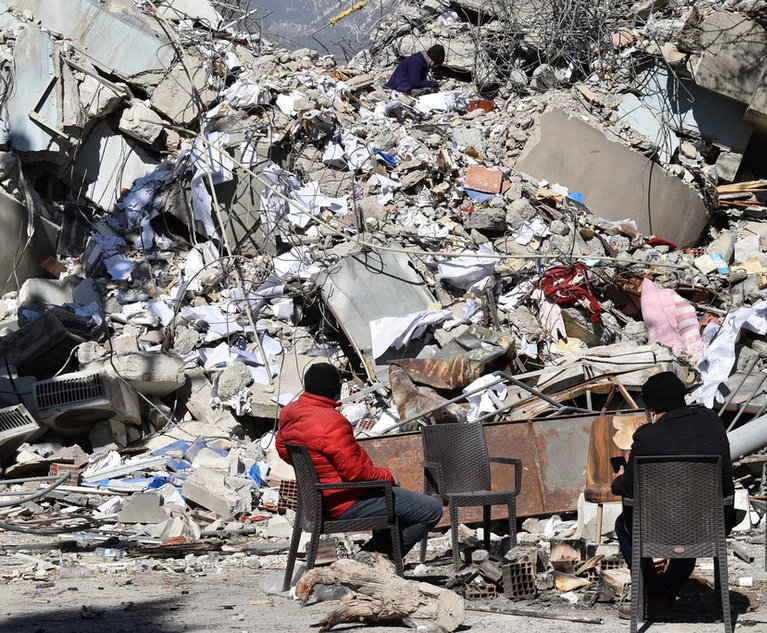 Destroyed buildings after the earthquake in Turkey earlier this year. The series of quakes, which also hit Syria, were the most damaging catastrophes during 2023's first half. Credit: Abdulkadir/Adobe Stock
Destroyed buildings after the earthquake in Turkey earlier this year. The series of quakes, which also hit Syria, were the most damaging catastrophes during 2023's first half. Credit: Abdulkadir/Adobe Stock
During the first six months of 2023, global insured losses reached $53 billion, according to Aon, which reported this was the fourth-highest first half total on record and around 46% above the 21st-century average.
Recommended For You
Want to continue reading?
Become a Free PropertyCasualty360 Digital Reader
Your access to unlimited PropertyCasualty360 content isn’t changing.
Once you are an ALM digital member, you’ll receive:
- Breaking insurance news and analysis, on-site and via our newsletters and custom alerts
- Weekly Insurance Speak podcast featuring exclusive interviews with industry leaders
- Educational webcasts, white papers, and ebooks from industry thought leaders
- Critical converage of the employee benefits and financial advisory markets on our other ALM sites, BenefitsPRO and ThinkAdvisor
Already have an account? Sign In Now
© 2025 ALM Global, LLC, All Rights Reserved. Request academic re-use from www.copyright.com. All other uses, submit a request to [email protected]. For more information visit Asset & Logo Licensing.








